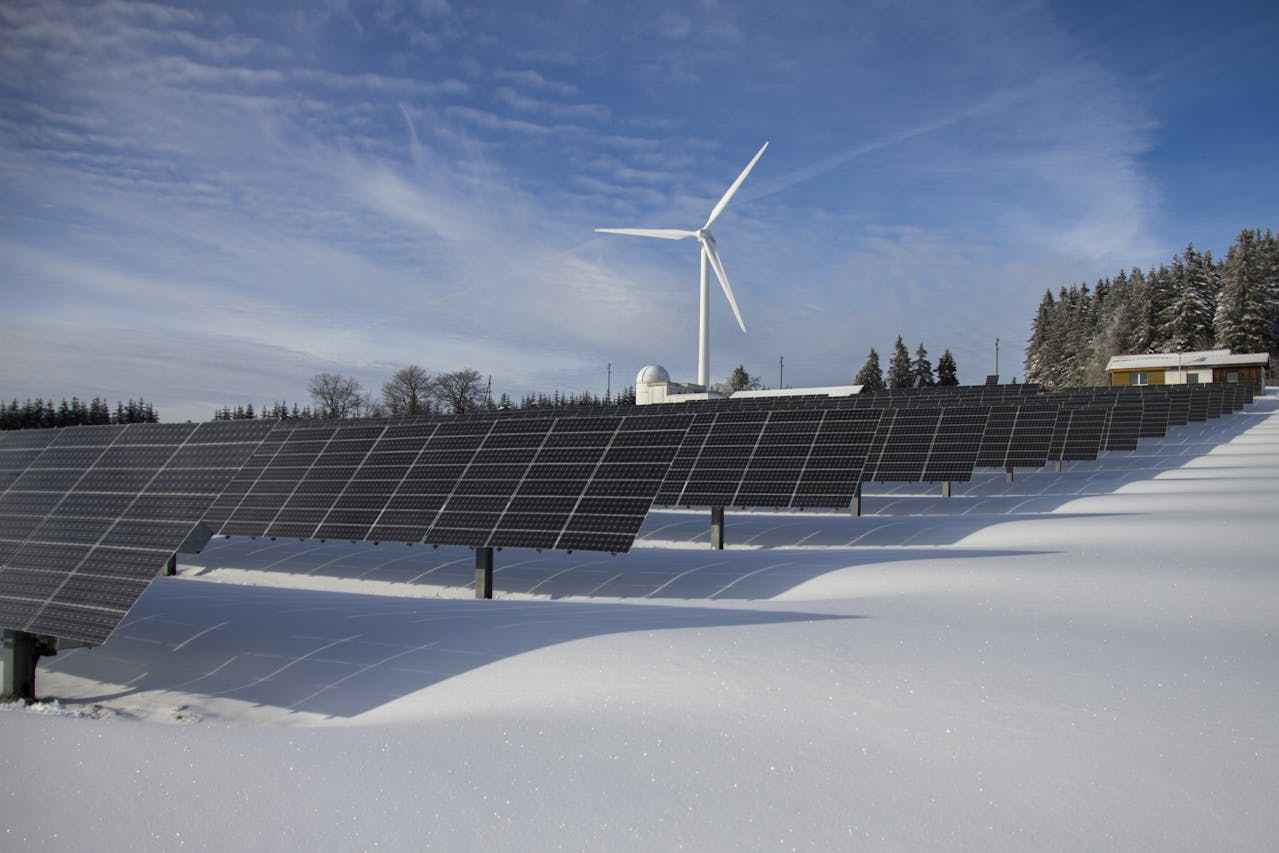
In today’s world, where energy consumption is a significant concern, finding affordable and sustainable alternatives for powering our homes has become imperative.
With rising electricity bills and environmental consciousness on the rise, many homeowners are turning to alternative energy sources to meet their power needs.
In this article, we’ll explore five affordable energy alternatives for your home, ranging from solar and wind power to geothermal heating and more.
Table of Contents
Solar panels work by capturing sunlight and converting it into electricity through photovoltaic cells. These cells, typically made of silicon, generate direct current (DC) electricity when exposed to sunlight.
Pros:
Cons:
The cost of installing solar panels can vary depending on factors such as the size of the system, location, and available incentives or rebates. However, the long-term savings on electricity bills often outweigh the initial investment.
Wind power involves harnessing the kinetic energy of wind through wind turbines to generate electricity. Wind turbines consist of blades that rotate when the wind blows against them, powering an internal generator to produce electricity.
Advantages:
Disadvantages:
Installing a residential wind turbine requires careful consideration of factors like local zoning regulations, wind speed, and available space. Regular maintenance is necessary to ensure optimal performance and longevity of the turbine.
Geothermal heating and cooling systems utilize the stable temperature of the Earth’s subsurface to provide efficient heating and cooling for homes. These systems circulate fluid through underground pipes to exchange heat with the surrounding soil or water.
Benefits:
While the initial cost of installing a geothermal system can be higher than conventional heating and cooling systems, the long-term savings on energy bills often make it a cost-effective investment. Installation involves drilling boreholes or trenches for the underground piping network.
Biomass energy involves using organic materials such as wood, crop residues, or animal waste to generate heat or electricity through combustion or biochemical processes.
Biomass energy is considered renewable as long as the organic materials are replenished through sustainable forestry or agriculture practices. However, concerns exist regarding emissions and land use impacts associated with biomass production.
Various technologies, including stoves, boilers, and biogas digesters, can convert biomass into usable energy for heating, cooking, or electricity generation. Biomass energy can be particularly beneficial in rural areas with abundant organic waste resources.
Hydropower involves capturing the energy of flowing water, such as rivers or streams, to generate electricity through turbines connected to generators. Large-scale hydropower plants are common, but micro-hydropower systems can also be installed for residential use.
While hydropower is a clean and renewable energy source, it can have significant environmental impacts, including habitat alteration, fish migration barriers, and downstream water quality effects. Careful planning and mitigation measures are necessary to minimize these impacts.
For homeowners with access to flowing water on their property, micro-hydropower systems can provide a reliable source of electricity. However, site-specific factors such as water flow rate and elevation change must be considered to determine feasibility and cost-effectiveness.
When considering which energy alternative is best suited for your home, it’s essential to weigh factors such as upfront costs, long-term savings, environmental impact, and site-specific considerations.
Each option has its advantages and challenges, so thorough research and consultation with experts can help you make an informed decision. Platforms like energyhelpline.com provide valuable resources and comparison tools to assist homeowners in evaluating different energy options and finding the most suitable solution for their needs and preferences.
Exploring affordable energy alternatives for your home can not only reduce your carbon footprint but also lower your energy bills and increase energy independence. Whether you opt for solar, wind, geothermal, biomass, or hydropower, transitioning to renewable energy sources offers numerous benefits for both homeowners and the environment.
Pallet racking plays a central role in how a warehouse functions day to day. The…
Owning commercial property represents a significant financial and operational commitment. Whether the asset is a…
Exploring island beaches, diving locations, or the energetic city life are all amazing experiences when…
Growth in the mortgage sector requires more than increased case volume. Advisers must balance commercial…
Acoustics are crucial in any space, whether it's an office, classroom, or home workspace. Poor…
Engineering Foundations in Modern Casting Engineering expertise is vital to modern metal casting. It determines…